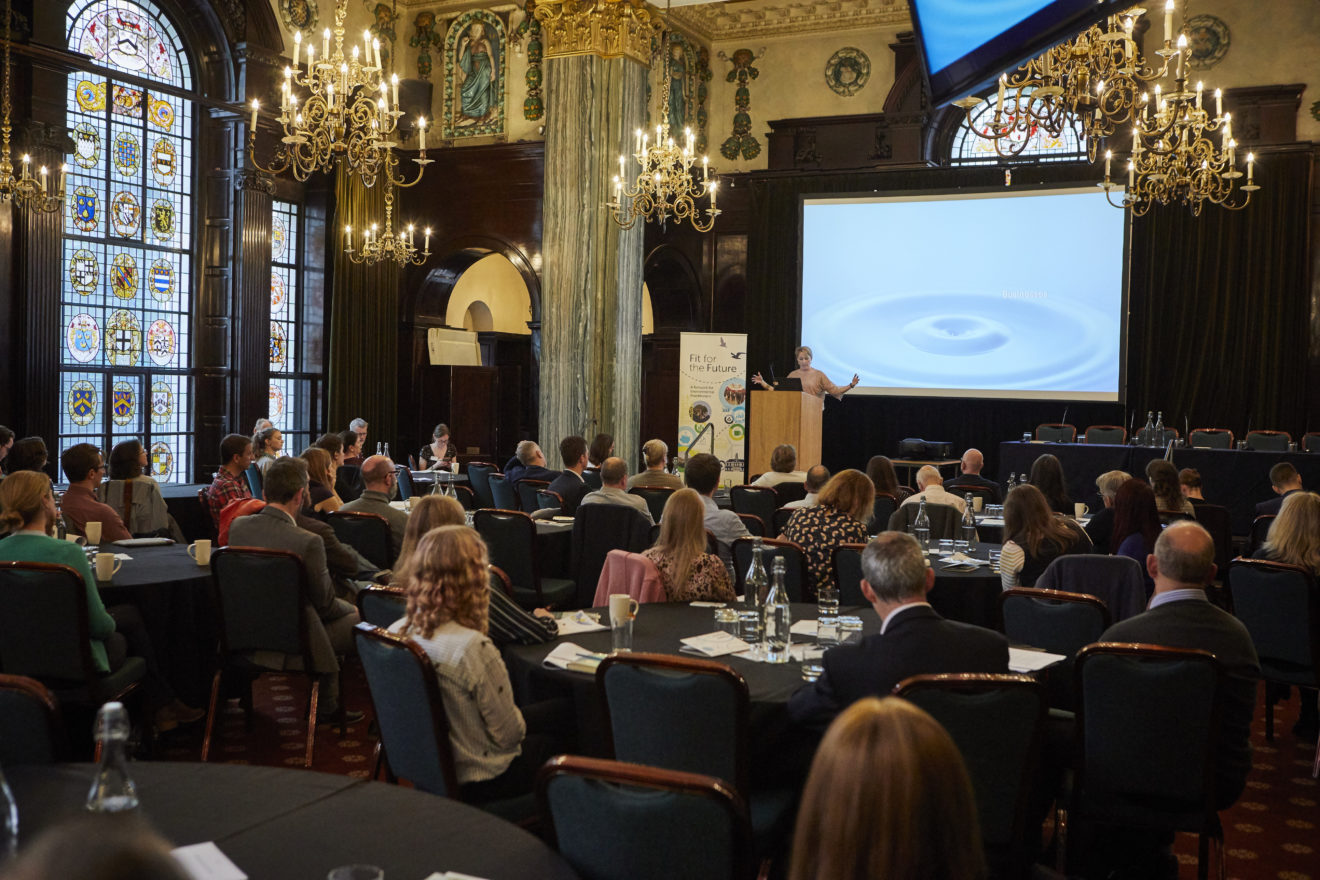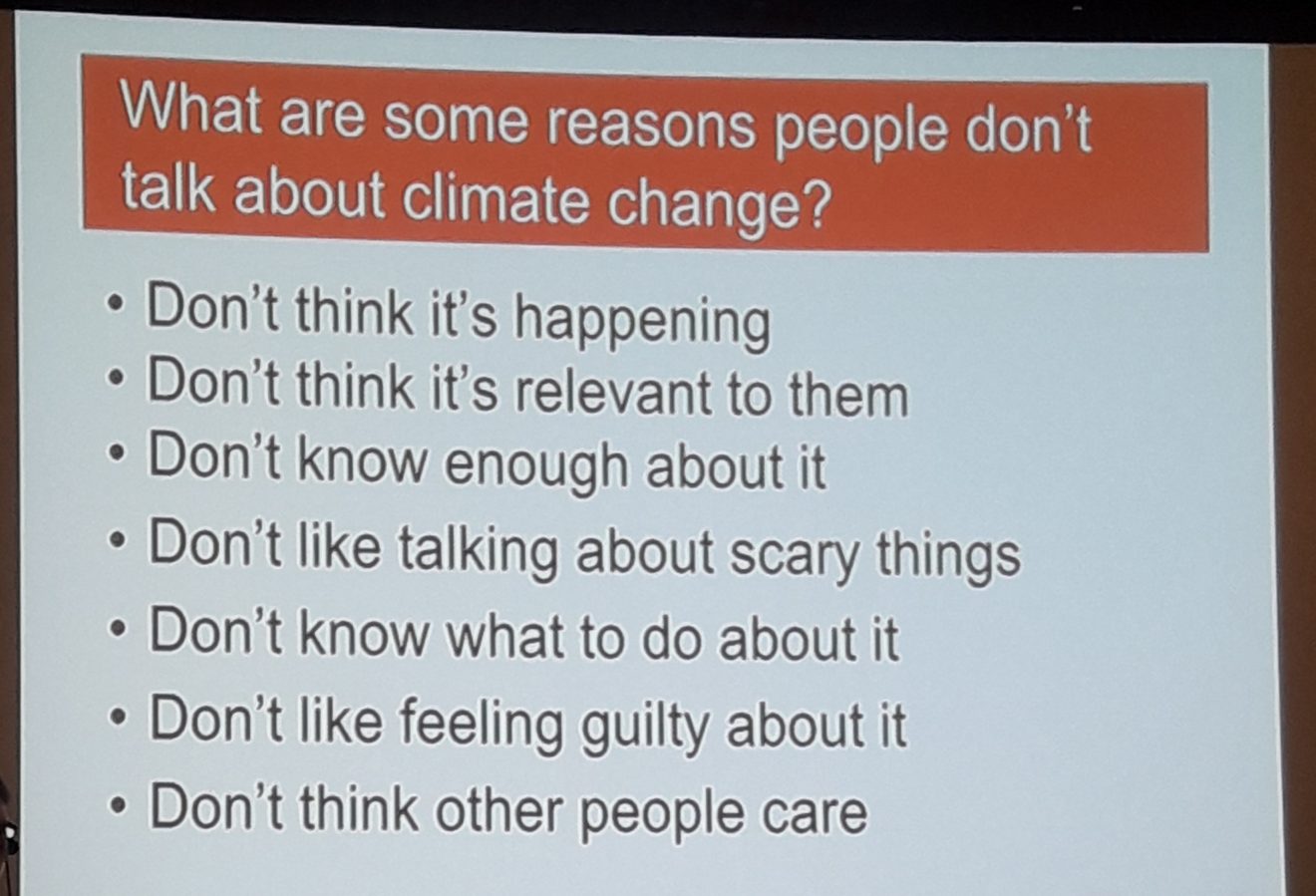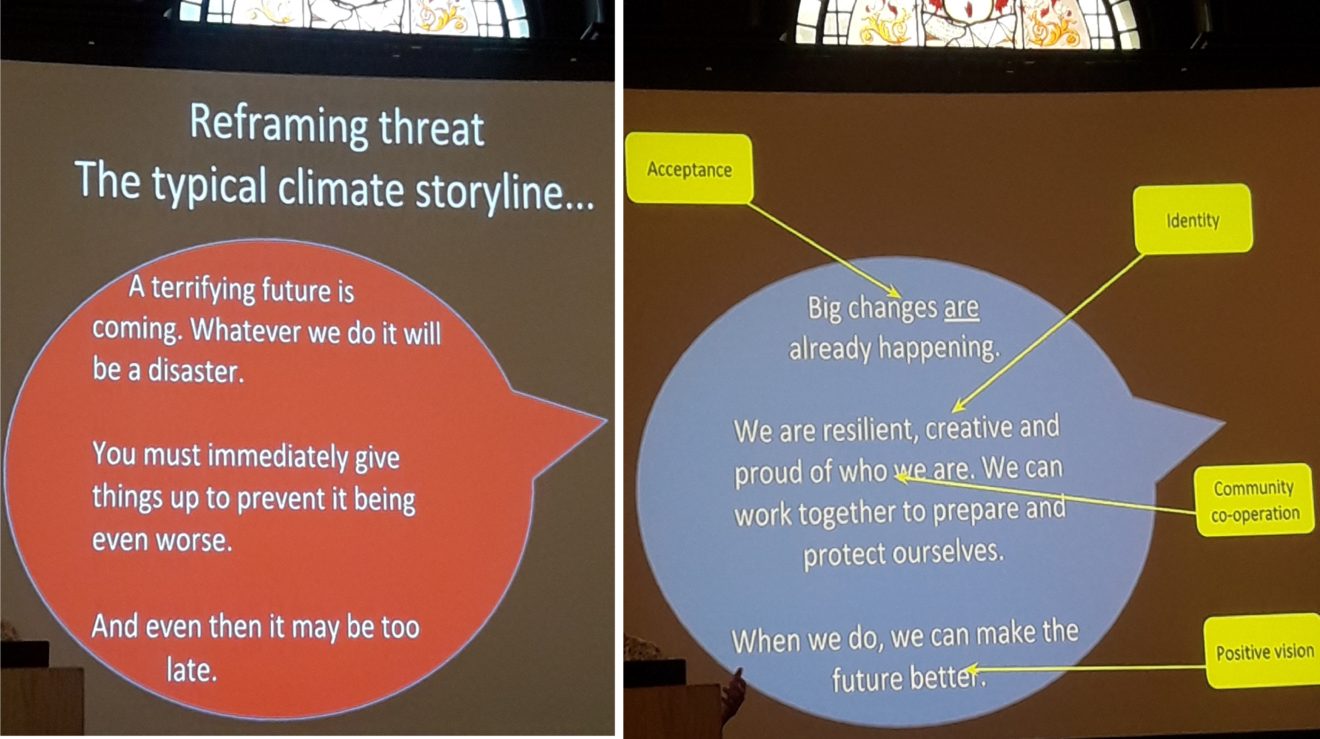-
Fit for the Future (Weekly blog, 4 November 2018)
Posted on November 4, 2018A blog by Catherine Leonard, Secretary-General
Recently I attended the Fit for the Future ‘Network Harvest’ here in London. Fit for the Future is an environmental sustainability network of charities, heritage organisations, cultural venues, public sector bodies and others. These groups work together in order to become more climate-friendly, adaptive and resilient. Once a year, the Fit for the Future members meet in person to share solutions and inspire positive change.

Julie Hirigoyen addressing the Fit for the Future Network Harvest (with thanks for the photo)
Fit for the Future
It was great to join some of the hundred or so members at their Network Harvest. Moreover it was fascinating to hear from passionate speakers and be involved in inspirational workshops.
The Chairman of Fit for the Future is Sir Ed Davey MP. Ed was Secretary of State for Energy and Climate Change (2012-2015) so is great champion. He said in his opening remarks that ‘countries around the world are really feeling the impact of climate change’. This will come as no surprise to INTO members!
Julie Hirigoyen, Chief Executive of the UK Green Building Council UK Green Building Council gave a rousing key-note, ‘How big is your splash?’ She ended with a powerful call to action for the practitioners involved in the network:
“If last week’s IPCC Report taught us anything it’s that time is of the essence. As sustainability professionals, all of us in this room need to urgently step up to what is probably the greatest challenge of our time. We are at a pivot point in history, and I really strongly believe that everyone in this room has a part to play in that…”
“…We are the first generation to know categorically that we are destroying the planet, and the last to be able to do something about it.”

Harvesting good ideas
Other speakers followed from a variety of different organisations. It was really interesting to hear from people not working in the heritage sector. I particularly enjoyed the practitioner-led case studies where we learned:
- Following collaborations with network members, Adnams brewery has reduced water use by 40-50% and energy by 12-15%.
- That it now takes just 10 hours to drive across the country in an electric vehicle. And with 25% of greenhouse gases coming from transport, this is an important stat from Zero Carbon World
- The British Heart Foundation’s trade in second hand clothing was eye-opening and a chilling reminder to buy less.
- Historic Environment Scotland has prepared a Climate Change Action Plan, much needed at Duff House where potential impacts are worrying.
- The impact of climate change on the historic churches looked after by the Diocese of Southwark.
- Manchester University’s 10,000 Actions behaviour change programme has improved environmentally sustainability on campus.
I particularly loved this last idea. Sometimes we hold our heads in our hands and wonder what we can do about climate change. This was a very practical, community-based solution with a big focus on personal action and communication.
Practical learning and sharing
In the afternoon, I attended workshops on Plastics and Communicating Climate Change.
The Plastics workshop focussed on strategies for phasing out single use plastic and reducing waste. Adam Hall shared how Surfdome had reduced plastic pollution with a three step approach: Raising awareness, the idea of the 2-minute-beach-clean and making the company 95% plastic-free. All good ideas as we look towards what we might do as a movement about plastic.
Lauren Wiseman spoke about WWF’s plastic policy and also had a three-point plan: Policy and buy-in; monitoring and reporting; education and information.
I found this session fascinating from a personal perspective. Plastic is everywhere and we’ve stopped noticing it. In the office we can avoid plastic by not using sticky tape, window envelopes and plastic pens. And what about the kimble? (These are those little plastic tags you get on clothes which WWF have eliminated from their toys.) I’m certainly going to be looking out more for plastic in my every day life after this workshop.
Communicating climate change
The communications workshop was equally fascinating. Robin Webster of Climate Outreach Climate Outreach gave some great insights and tips.
- Importance of storytelling
- Dental hygiene analogy – why people don’t like talking about climate change

- What doesn’t work:
- Communications that are overwhelming and disastrous. Focus instead on what we can do as a community
- Psychological distance – Talking about ice sheet melt in 2050 is just too far away for most people
- Facts and graphs
- Blame
- Too much focus on financial benefits

Moving from overwhelming and disastrous … to positive messaging
- What does work:
- Real people and authenticity – what you love is under threat
- Centre right values – integrity and authenticity; a sense of responsibility; keeping things in balance; the need for security
- Powerful imagery showing people doing things to fight the challenge

Changing the visual language and finding new ‘environmental’ messages
- Personal action and making a difference
- Do something different (seemingly small, like taking the train instead of driving) then influence others by talking about it
So lots of food for thought as we look forward to the next Climate Change talks, and what we might be saying as the National Trust movement. Also how we might frame our thinking around the Sustainable Development Goals.
Thanks for reading!
Further reading
Our climate change pages have lots of useful articles and information.
We began advocating the National Trust approach to climate change at our first INTO conference in 2009, which addressed the theme ‘ ‘Conservation in a Changing Climate’. The Dublin Declaration can be found here.

 44 (0)20 7824 7157
44 (0)20 7824 7157